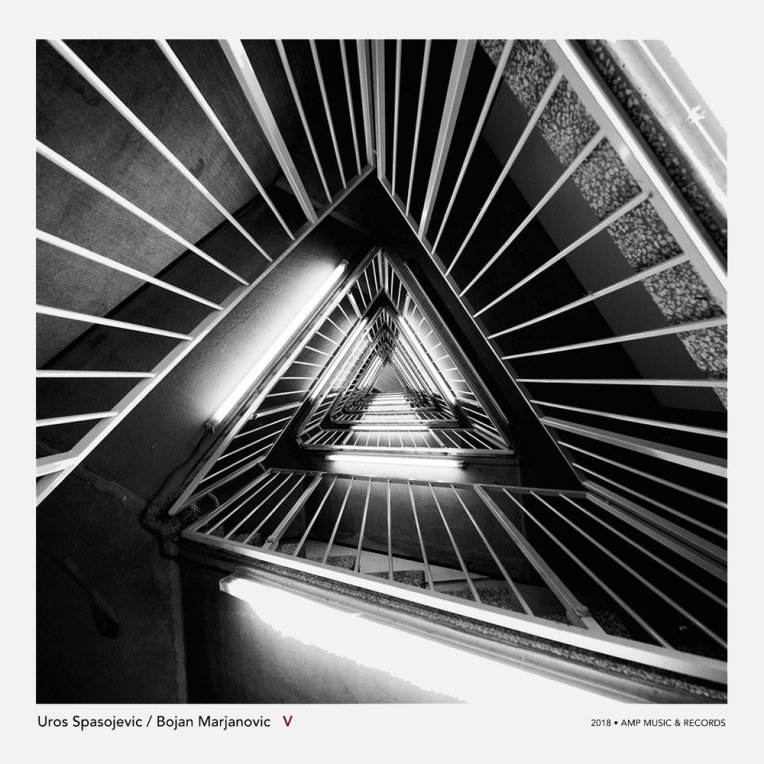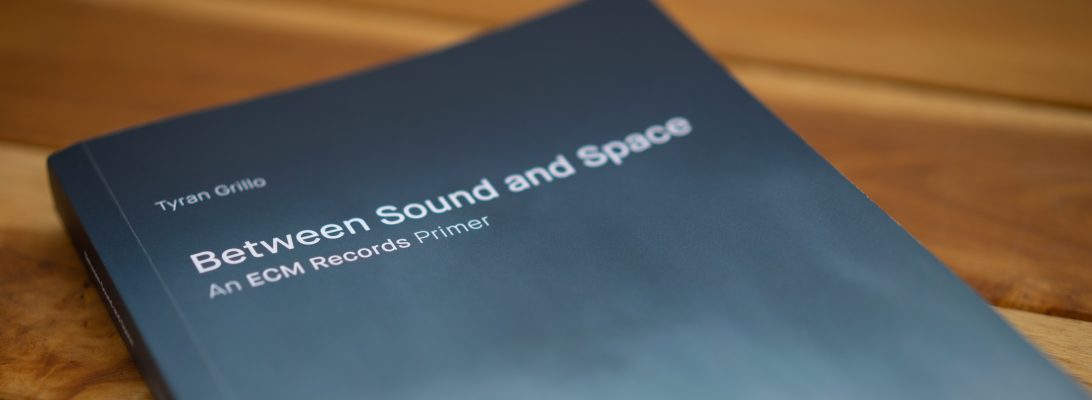
Psychologist Mihaly Csikszentmihalyi defines “flow” as a oneness of performer and process, and on V electric bassist Uros Spasojevic and pianist Bojan Marjanovic achieve precisely that. That said, the Serbian duo doesn’t so much combine forces as close the gap between them, like two hands from different religious traditions coming together in a single prayer.
Spasojevic is unique for drawing out the bass’ corporeal qualities. In his solo “North,” he opens the curtain in a gesture so holistic that it seems to inhale and exhale simultaneously. With a tone that’s rounded yet which pierces the heart, he drops higher notes into a blurry pond, every ripple like a newborn song in search of words. The piano’s entrance in “Senok” reveals, with quiet assurance, an underlying Ketil Bjørnstad influence. Yet while the Norwegian pianist-composer’s cinematic lyricism is paralleled, it’s filtered through a color scheme all its own. Such an association suggests an ECM connection, and by no coincidence, as Spasojevic—who writes all the music here—cites the label as a staple of his listening diet. Such respect is further enhanced by the fact that the album was mixed and mastered under the attentive hand of Jan Erik Kongshaug at Oslo’s famed Rainbow Studio, and by the familiar thematic fragment of “Water,” which seems to have been lifted sanctimoniously from Kenny Wheeler’s “Nicolette.”
The sonic footprint of Vis as non-invasive as it is expansive. In “Guide” and “Change,” it reaches deepest layers of emotional transference, rendering hidden dreams with the pigment of open realities. “Hope” is a prelude to the title track, of which a pianistic lattice offers its plot to Spasojevic’s melodic fruit. As Marjanovic heightens his freedom of expression in spiraling architectures, he uncovers more than the album’s mission statement, but a land without borders. “End of the hill” thus surveys the album’s most abstract territories, making use of electronic augmentations and spontaneous impulses, while “Sea” closes the circle with another lone journey, of which every step brings us farther from a destination, letting us float instead across a misty sea, thankful for the beauty of unknowing.

